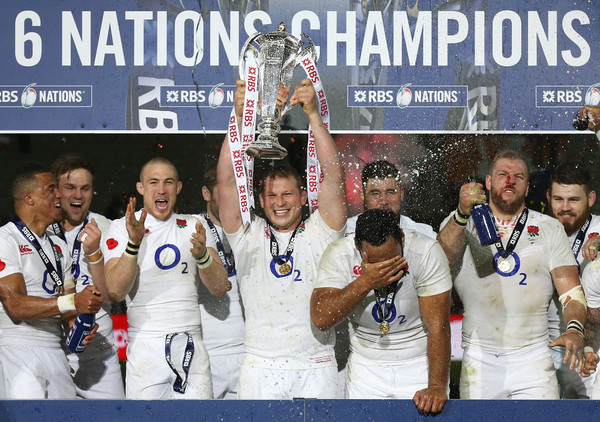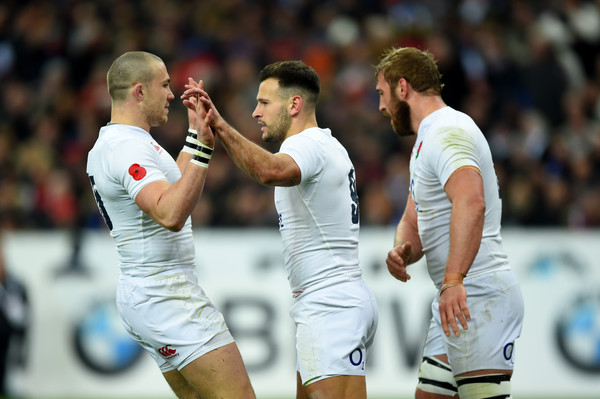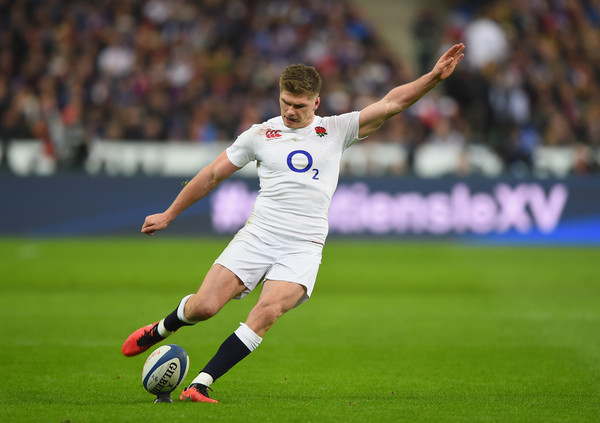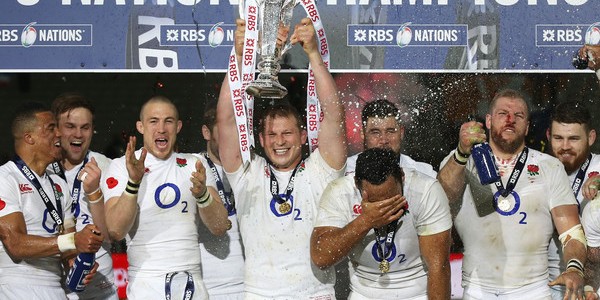
The 2016 Six Nations tournament is over. England win it with a perfect 5-0 record while Italy once again end up at the bottom, with the Wooden Spoon, losing all five matches.
It’s the fifth time England have won the tournament in its current form, tying with France. They got their first Grand Slam since 2003 (when they won the World Cup a few months later) and first Triple Crown since 2014, although they failed to win the title that year. It’s the first championship overall for England since 2011, often finishing in second place. Overall, England rarely do too poorly, which is why they’re ranked quite ahead of the rest despite their title droughts from time to time, winning three of their five titles in the first five years of the new format.
England won in 2011, promising themselves a great World Cup only to be knocked out in the quarterfinals by France. In 2015, they didn’t make it out of the group stage in the World Cup, which called for some overhaul, and maybe leading to their triumphant run in the 2016 Six Nations, finishing with a 31-21 win in Paris over France (who once again don’t come close to making a push for the title) and maybe most importantly, beating their direct rivals, Wales (25-21) and Ireland (21-10).

The decline, or stagnation, of the French continues. Since their final in the 2011 World Cup they’ve finished 4th or lower each time, including the Wooden Spoon in 2013. Their wins this time around came against Ireland, who are going through an interesting phase despite their 2014 and 2015 titles, and against Italy, the kings of the Wooden Spoon. Talks of changing the system into a relegation one are obviously targeted at the Italian, but Sergio Parisse rightfully said that if it was Ireland or Scotland finishing last, it would have been a lot more difficult to approve relegation.
Scotland are Scotland. Two wins seems to be the best they can do these days, and it is an improvement to their five loss tournament in 2015. They beat both Italy and France, lost by 10 points to Ireland and by single digits to England and Wales. Add that to their performance against Australia in the World Cup, and it might be a hint that Scottish Rugby is moving in the right direction.
One might not say that about Wales, as perhaps their most talented generation is hitting some sort of wall or impasse. They did finish second after two third place finishes, but they couldn’t beat Ireland (16-16 draw) and looked bad for most of their loss against England before a hectic comeback attempt in the second half, eventually blocked with some ferocious defending.

It has always been said that England should do a lot better at both the Six Nations and their other matches due to the amount of players and money invested in the sport. Maybe it was all about the coaching all along, and now England have one who might make the most of the talent at his hands. It might not be enough to dethrone New Zealand from where they are right now (we’ll only know in three and a half years in Japan), but it should be enough for more than a Six Nations title once every five or six years.
Six Nations All-Time Table (2000-2016)
| Pld | W | D | L | PF | PA | PD | T | Pts | Champs | GS | TC | WS | |
|---|---|---|---|---|---|---|---|---|---|---|---|---|---|
| 85 | 60 | 1 | 24 | 2350 | 1327 | + 1023 | 245 | 121 | 5 | 2 | 4 | 0 | |
| 85 | 55 | 3 | 27 | 2080 | 1536 | + 544 | 211 | 113 | 3 | 1 | 4 | 0 | |
| 85 | 54 | 2 | 29 | 2084 | 1534 | + 550 | 200 | 110 | 5 | 3 | N/A | 1 | |
| 85 | 47 | 3 | 35 | 1984 | 1811 | + 173 | 183 | 97 | 4 | 3 | 3 | 1 | |
| 85 | 21 | 2 | 62 | 1378 | 2115 | −737 | 102 | 44 | 0 | 0 | 0 | 4 | |
| 85 | 12 | 1 | 72 | 1239 | 2792 | − 1553 | 105 | 25 | 0 | 0 | N/A | 11 |
